

Tamburlain
gamer level 5
4535 xp
4535 xp
followers
8
8
Use my invite URL to register (this will give me kudos)
https://boardgaming.com/register/?invited_by=tamburlain
profile badges
...
...
...
...
recent achievements

Private eye
Follow a total of 10 games
Follow a total of 10 games

Followed my first game
Follow a game by clicking "Follow" on the game page
Follow a game by clicking "Follow" on the game page

Explorer - Level 1
Earn Explorer XP to level up by completing Explorer Quests
Earn Explorer XP to level up by completing Explorer Quests

I Walk the Talk!
Claim that you have played a game today by clicking the "Played Today!" button on a game page 100 times.
Claim that you have played a game today by clicking the "Played Today!" button on a game page 100 times.
Player Stats
Critic (lvl 3)
875 xp
875 xp
Explorer (lvl 1)
165 xp
165 xp
Professor (lvl 2)
543 xp
543 xp
Reporter (lvl 1)
122 xp
122 xp
About Me
What kind of gamer is me? I enjoy playing (and just thinking about) games of many types, but my all-time favorites are hybrids which manage to stretch across categories.
What else? Lessee... I have no problems playing games in public. At least not those that can fit comfortably on a pub table. My sense is that, like people, there are many games that would benefit from a more compact material footprint.
In terms of theme, cartoonish power fantasies are not really my thing, though I have a soft spot for clever kitsch and the absurd. Historically-rich or suspense-laden themes are a big plus, as are any themes that mesh well with their game’s key mechanisms; however, it is not uncommon in my experience for a game to feature such a compelling strategic space to explore that the notion of theme simply recedes into the background. And that's okay. In other words, “pasted-on" is not necessarily the kiss of death in my book.







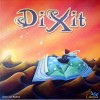
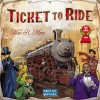






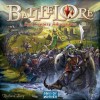




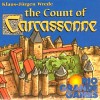

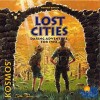















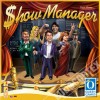


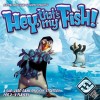



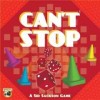


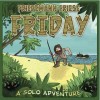
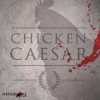





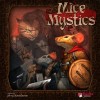


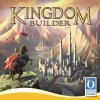




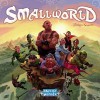

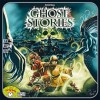

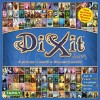

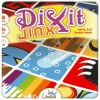





Dixit
‘Dixit’ is a game with light rules that nonetheless manages to tap deep aspects of social cognition. If you are a person who revels in acts of interpretation, who enjoys reading people as much as exploring layers of subtext in literature and the visual arts, then chances are you will appreciate the unique invitation that ‘Dixit’ represents. It is an invitation to play with meaning.
Players are dealt hands of cards, with each card bearing a unique complex image. There are two basic roles for players. In the primary role, you will be asked to select a card from your hand (unbeknownst to other players) and use it to create an utterance that “matches” the image. That’s right, any utterance. You can recite the whole Gettysburg Address (in Klingon, if you wish); you can hum a few bars of ‘Ain’t Misbehavin’; or you can issue a monosyllabic grunt. But you should know that for whatever utterance you do make, the other players, in keeping with their secondary role, will secretly choose one image from their own hands that they feel best matches your “hint”. Then you will gather the cards bearing their selections, shuffle them, and spread them out onto the table such that your own card is included amongst the many foils.
After scrutinizing the the images, the other players will then simultaneously indicate which on display is the “true” inspiration of your utterance. Scoring is structured so that you are rewarded for offering clever clues–meaning an utterance that is neither too hard nor too easy to interpret. (If either everyone or no one chooses your card, you get bupkis.) In their secondary roles, other players will score points if they correctly interpret your utterance, and/or if they manage to deceive other players into choosing *their* foil.
Similar metacognitive “voting” mechanisms have been used before. But what makes ‘Dixit’ tick–and in an astonishingly novel way–is the artwork on the cards. Simply put, ‘Dixit’ features the most brilliantly evocative art that I’ve encountered in any game, bar none. Marie Cardouat has graced the game with hundreds of little expressionist gems that look as if they were pulled from the pages of a Jungian fairy tale. In terms of style, the illustrations are at times childlike, dreamlike, and often are subtly unsettling. Like imagery on Tarot cards, Cardouat’s compositions beg to be puzzled over. And in this capacity, they preserve the most crucial functionality of the game.
Ultimately, what makes the ‘Dixit’ worth returning to again and again, is its easy enchantment, not only with respect to what is “seen” in the cards, but in the predictions you are asked to make about others’ interpretations, and vice versa. The poetry cuts both ways, as you are both the interpreter and a text that is being interpreted. This also means that the tenor of the game is highly influenced by the personality of the individuals playing it. Depending on the group, your game may be punctuated by introspective “Aha’s” or by raucous laughter. Or both. To me, this is not just the sign of a great party game, but of a great game period.